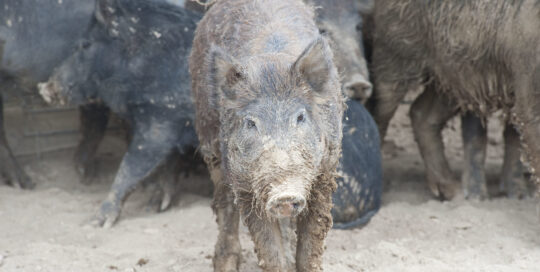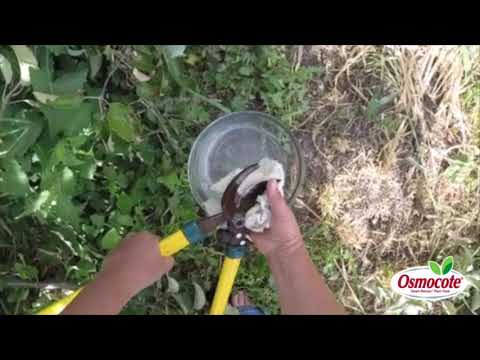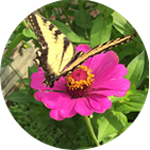West Nile Worries
Views: 3385
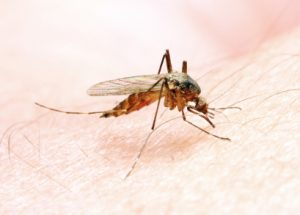
My brother-in-law had to go to Houston this week. He’s used to traveling to China and foreign countries, but this time we’re all concerned about the potential for him contracting West Nile Virus, particularly since he likes running at dawn or dusk.
I feel for the folks in Texas who finally enjoyed the break in the long drought, yet are inundated with mosquitoes and under the real threat of West Nile Virus.
West Nile Virus Symptoms
West Nile is a virus transmitted by mosquitoes to humans, horses, or other animals that causes brain inflammation. They pick it up from infected birds.
The good news (if there is such a thing when speaking about a virus) is that, according to the Center for Disease Control, 80 percent of those infected with the virus won’t experience negative effects. Twenty-percent will have mild symptoms, such as headache, fever, body aches, sometimes vomiting, swollen lymph nodes and a rash.
A very small percentage has serious implications involving even coma or death. In 2012 there have been over 40 people who’ve died. People who’ve been bitten usually show symptoms within 9-14 days.
As for horses, I’ve seen a horse with West Nile, and it was painful to watch. It was a friend’s young gelding, and he had a tough time of it. The poor guy could hardly stand or eat. Thankfully, he pulled out of it, but we wondered if he’d ever be truly sound.
Protection Against West Nile Virus
Despite the slim chance of becoming seriously ill, I still freak out when one of the boys has a mosquito bite since there have reports of West Nile Virus in some mosquitoes. We haven’t had much at home. As a matter of fact, we never had to use the Thermacell mosquito repellent at all this year. And I can’t even find the bug spray. But when we went to one of the community gardens, which is near the river, there were more out. The best thing to do is to wear some sort of mosquito repellent, and try to avoid those times of the day when the mosquitoes are out in force.
One way horse owners can prevent the disease is to vaccinate their animals. This is best done in the spring, but if you live in a warm climate that has several more months of mosquito season, do it now. If it’s your first time, you’ll have to give him a booster in another month, but it’s still worth it. Next year you’ll just have to give one. Our here, my vet sells the vaccine to me, and I can administer it myself, but it all depends on your state regulations. You might have to take the horse to the vet (or vice versa) to accomplish the task. Other than that, your best bet is to use a repellent or bug blanket to keep the mosquitoes off of them as much as possible.
Aerial Spraying for West Nile Virus
Of course, the big news is the aerial spraying in Texas. I can completely understand peoples’ concern over the aerial spraying. I wouldn’t be thrilled with planes spraying poison overhead.
If you’re in the area where they’re spraying, avoid going outside when they’re spraying. Close the windows (if there are a handful of you who don’t have air conditioning). Thoroughly wash your fruits and veggies. And you might want to cover your fish ponds. Although most literature that I’ve read on the safety of the sprays, why take the chance of wiping out your fish? Supposedly, it breaks down in sunlight so there is no longterm accumulation of the chemicals.
West Nile Virus is definitely not something to be taken lightly, but don’t panic. Avoid those nasty little disease carriers the best you can, help your neighbors (particularly if you have elderly friends who can’t put up their own screens on windows and doors) and wait for the frost.
(The macro image of the mosquito is copyright abadonian from istock.)
Meet Amy Grisak
Amy is a freelance author and photographer in Great Falls, MT who specializes in gardening, foods, and sustainable agriculture. She provides information on every kind…
Amy's Recent Posts
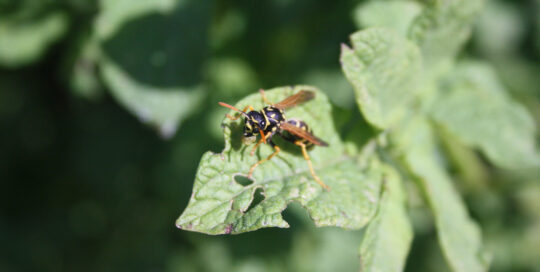
Looking into the Crystal Ball for a Pest Report
